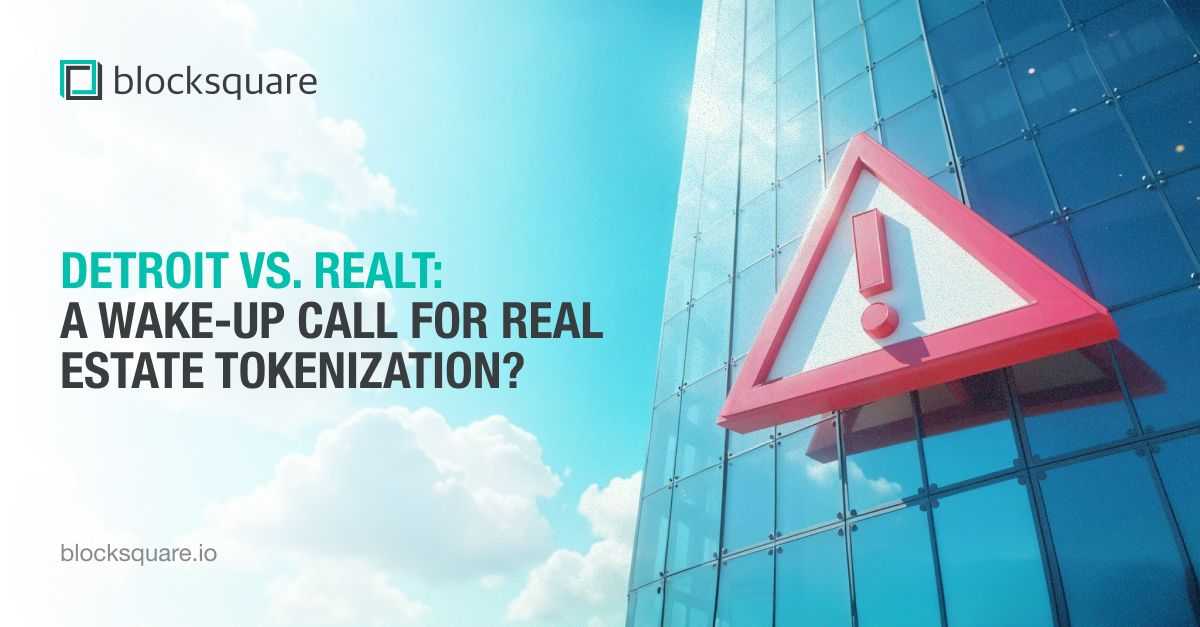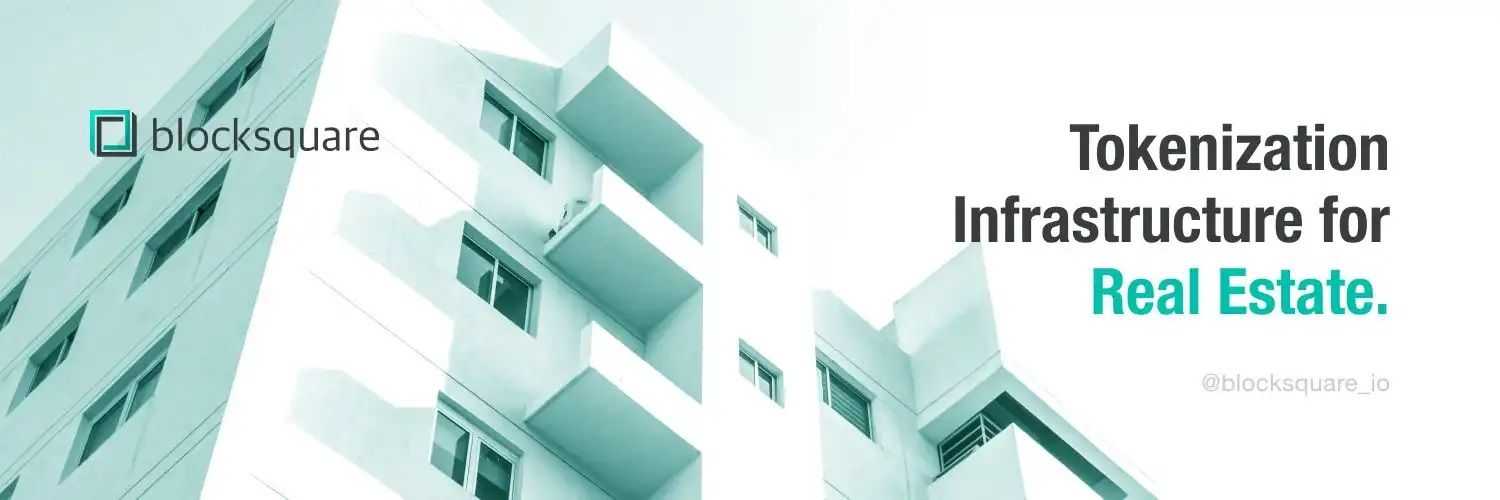Detroit vs. RealT: A Wake-Up Call for Real Estate Tokenization?
It came as a surprise last week when we learned about the legal case brought by the City of Detroit (Michigan, USA) against RealToken (RealT), a U.S.-based company known for pioneering real estate tokenization through blockchain.


At Blocksquare, this news resonated deeply. As one of the early teams building in the RWA real estate tokenization space, we’ve always viewed RealT as a serious and innovative peer. Their early adoption of blockchain to democratize access to U.S. real estate set a precedent that many of us respected, even if we took different approaches to solving similar challenges.
As far as details are known from public reporting, it appears that RealT is being sued over issues related to property conditions, unpaid taxes, and the overall management of rental homes—many of which were sold to global investors via tokenized shares.
Naturally, this raises a number of uncomfortable, yet essential questions for our industry.
What Happened — And What Can We Learn From It?
While we can't speculate on the internal workings of RealT’s business or management processes, the public narrative outlines a situation where tenants faced degraded living conditions, lacked communication channels with property managers, and in some cases, received eviction notices despite paying rent. The city of Detroit is now seeking to hold the company accountable for more than $2 million in unpaid property taxes and hundreds of code violations. But what does this situation really reflect?
Is it a case where tokenization worked on-chain but failed off-chain? Did decentralization dilute responsibility? And how should we—as builders, operators, and regulators—respond?
What It Is (and Isn’t): Rethinking Tokenization in Real Estate
This case offers an opportunity for everyone in our industry to pause and reflect. Tokenization, as a technology, doesn’t inherently solve property management or legal obligations. It facilitates transparency, accessibility, and programmability—but it does not replace the fundamentals of real estate operations.
As Makram Hani recently wrote in a public commentary:
“We must be careful not to confuse financial engineering with actual real estate fundamentals. Tokenization should not bypass regulation—it should strengthen it.”
That’s a valuable reminder. Real estate is deeply regulated for a reason. Tenants aren’t beta testers. Homes aren’t lines of code. Whether assets are tokenized or not, the real-world obligations around housing remain.
Industry Lessons: What Can We Do Differently?
In moments like this, it's not about pointing fingers. It's about learning together as a sector still in its early stages. A few critical reflections come to mind:
- Tokenization is not a substitute for governance: We must define who is accountable when things go wrong—on-chain and off-chain.
- Tenant experience matters: Without service standards and communication structures, tokenization risks harming the very people it seeks to help.
- Regulatory design must be integrated, not bypassed: Legal frameworks, licensing, taxation, and compliance aren’t optional—they're core to trust.
How Blocksquare Approaches These Risks
At Blocksquare, we’ve built our infrastructure with these concerns in mind—not because we have all the answers, but because we know what’s at stake.
Here’s how we structure things:
- Tokens represent economic rights, not legal ownership shares: This design minimizes regulatory friction while preserving enforceable revenue-sharing rights. But perhaps more importantly, it creates direct financial alignment between token holders and property owners. While the owner is focused on generating profit, token holders receive a share of the property's gross revenue—regardless of how efficiently the property is run.
If the property is poorly managed and profits shrink, the token holder still receives their share. The owner doesn’t.
This means property owners can’t cut corners without consequence—they remain obligated to distribute revenues, even if their own margin suffers. That pressure helps keep quality and management standards high.
-
Marketplace operators act as accountable intermediaries: They’re responsible for sourcing properties, managing communication, and ensuring reporting is transparent. Blocksquare doesn’t tokenize assets directly—we enable others to do so under clear governance.
-
Legal frameworks are embedded: Our protocol connects token issuance to enforceable legal documents, such as corporate resolutions and land registry caveats.
-
Property Management (PM) oversight: While Blocksquare doesn’t manage properties, our structure allows operators to work with PM service providers who can be replaced or corrected if standards aren’t met.
Closing Thought: We’re All Learning
We’re not perfect—and we don’t claim to be. Mistakes can happen, especially when introducing emerging technology into such a legacy industry.
But we believe in continuous improvement. We’re committed to taking the necessary precautions, learning from others, and working toward a model that prioritizes trust, enforceability, and quality for all stakeholders involved—tenants, operators, investors, and regulators alike.
Let’s not waste this moment. Let’s use it to raise the bar.
